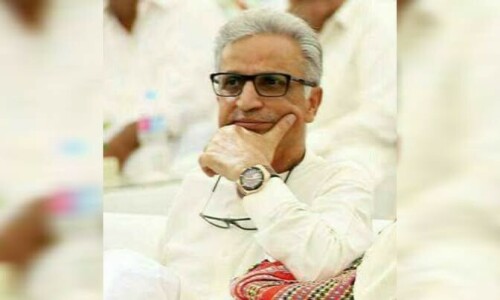When Mian Mohammad Din, a humble metal forger from Gujranwala, ‘manufactured’ Pakistan’s first local washing machine almost 40 years ago, he didn’t have the slightest idea that his product would rapidly change his family’s fortune. It did.
Din’s family hailed from Amritsar, and he used to manufacture kitchenware — metal glasses, etc — before he came up with his washing machine.
In recent years, the family business has branched off into fast food, and one of Din’s grandsons is also trying his luck in politics, evidence of the will to build upon the family’s platform. But the washing machine that hit the markets in 1975 remains the family’s emblem and has contributed to Gujranwala’s reputation as an industrial town that offers aspirants immense possibilities.
Out of that washing machine has emerged one of the country’s largest home appliances brands — Super Asia — which holds almost one-third of the market share in this segment despite the growing competition from local and Chinese rivals.
“The washing machine was a new thing in Pakistan back then. Every household wanted one, but the imported ones were expensive and unaffordable for the majority,” Mohammad Ashraf, a director at the Super Asia Group of Companies and one of Mian Mohammad Din’s sons, told Dawn in an interview earlier this month.
The Super Asia group’s annual sales turnover, including exports of Rs350m, is around Rs2bn
The demand for home appliances was soaring at that time owing to a significant growth in the disposable income of middle-class households from rising overseas remittances, especially from the Middle East, and increasing inflow of foreign funds to support the country with the Soviet-Afghan war effort.
“Our sales shot up in no time because our washing machines were way cheaper than the imported ones; Super Asia had become a household name in a very short time,” Ashraf recalled. “Encouraged by the popularity of our washing machine and the rapid growth in sales, our family continued to diversify into other home appliances later on,” he said.
Today, Super Asia makes perhaps the widest range of home appliances, including room air coolers, gas and electric water heaters, water dispensers, fans, microwave ovens, air conditioners, gas stoves etc. Later in the 2000s, the company’s management expanded into manufacturing motorcycles, CNG auto-rickshaws, insulation and packing material, and auto parts.
Two factors have led to the success of Super Asia as a home appliances brand: quality and affordability. “We try to stay ahead of our rivals in technology and our products are cheaper,” Ashraf said.
“For example, we are the first company to launch the complete plastic body locally made washing machine in Pakistan, and are now planning to launch a fully automatic model. It is because of our quality and prices that our exports are increasing fast as well.”
The group’s annual sales turnover, including exports of Rs350m, is around Rs2bn, according to Ashraf. Like other businesspeople, he described the period under Gen Pervez Musharraf as the “best in the country’s history”. “Our sales grew exponentially during the Musharraf years,” he said.
In recent years, the gas and power shortages and hefty increases in energy prices have strongly affected domestic sales of home appliances.
“Sales of gas appliances have gone down because of non-availability and low pressure of gas during winter, and sales of electricity appliances have dipped because of unaffordable power prices. The home appliances market can grow quickly if the energy shortage is removed and prices brought down,” he said.
Ashraf says the energy shortage and higher-than-regional-average prices have immensely contributed in raising the cost of production over the last one year or so.
“As a consequence, China is fast overtaking our domestic market because its products are cheaper and subsidised. Many prefer Chinese products only because of their prices, even if these are inferior in quality,” he noted.
He also defended his family’s decision to invest in the fast food business. “There is no scope of investment in manufacturing unless the growing energy shortage is taken care of. Everyone wants some decent return on his capital investments. Investing in the manufacturing industry today means losses. Only a man of very strong determination can and will set up industry under the present conditions, when factories are closing down or suffering losses.”
Published in Dawn, Economic & Business, November 24th, 2014














































